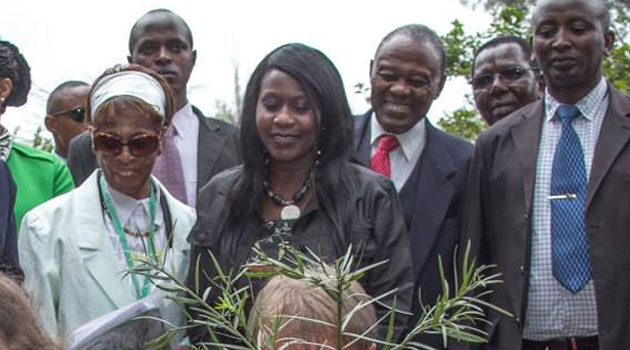
Speaking during official opening of the three day summit, Environment Cabinet Secretary Judi Wakhungu attributed poor forestry resource governance to weak institutions, weak laws and a degradation of the continent’s forests/FILE
NAIROBI, Kenya, Jun 28 – Kenya is hosting the 4th annual East African Timber Trade forum that is set to tackle negative impact of deforestation as well as look for ways to bring to an end illegal trade in timber and forest products.
Speaking during official opening of the three day summit, Environment Cabinet Secretary Judi Wakhungu attributed poor forestry resource governance to weak institutions, weak laws and a degradation of the continent’s forests.
“Communities living in the forest neighbourhoods are deprived of their livelihood support when forests are harvested or degraded,” she said.
Representatives of regional forestry authorities in the East African Community (EAC) and South African Development Community (SADC) region are meeting to deliberate on measures to tackle illegal trade in timber and forest products.
Their objective is to promote good forest governance by integrating Forest Law Enforcement and Governance (FLEG) into existing structures under EAC that will work towards the contribution of forestry to social and economic development in the region.
Wakhungu said that Africa saw a net forest loss of 240,000km2 between the years 2000 and 2005, more than half the forest globally during this period.
“Illegal logging and evasion of timber taxes are thought to cost developing countries more than US$15 billion a year,” she explained.
She challenged the forum to work towards developing strategies that will assist in reducing unsustainable exploitation of forestry resources, illegally sourced timber in the markets and to promote equitable access to these resources within our region.
Wakhungu recognized the efforts made by the forum members in initiating the process that eventually led to the signing of the Zanzibar declaration. She added that with the declaration the parties secured opportunities for even closer collaboration in protecting our forests against unsustainable use.
Environment Principle Secretary Margaret Mwakima urged participants to device ways and means of enhancing the implementation of FLEG.
She says this will boost the contribution of forestry to social and economic development in the region.
“Through interactions and exchange of experiences you will be able to generate relevant data and information that will serve as the basis for further action, policy formulation or revision” she said while addressed the participants
She called upon civil society, the private sector, government, consumers and regional economic blocs to all work together to make this process a success.









































